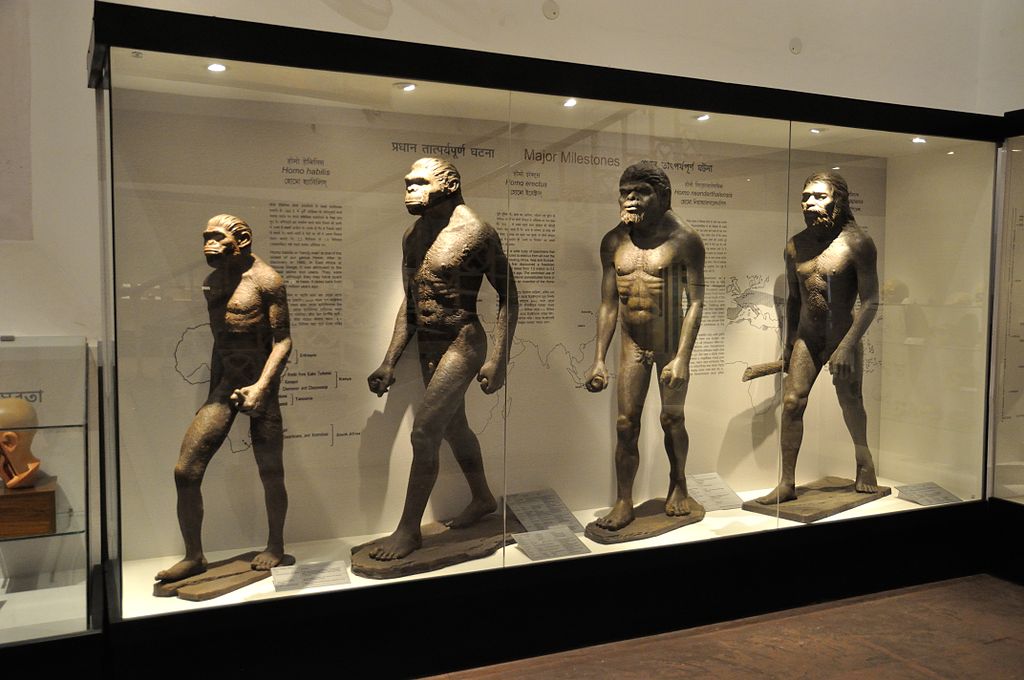Science fiction would people believe that in thousands of years, humans might naturally evolve to possess incredible abilities. However, according to a new study, this might not exactly be the case. In terms of lifespan, for example, it seems Homo sapiens have reached an evolutionary limit. Even with artificial methods of genetic modification, the evolutionary ceiling will not entirely disappear.
In the study published in Frontiers in Physiology, researchers from multiple disciplines looked into the biological factors that affect human evolution and the state of the species. According to their findings, humans have already reached the limit in a variety of aspects, including age, height, and physical abilities.
“In this interdisciplinary approach, we call into question the validity of subsequent forecasts and projections through innovative and related biomarkers such as sport, lifespan, and height indicators. We set a theoretical framework based on biological and environmental relevance rather than using a typical single-variable forecasting approach. As demonstrated within the article, these new views will have major social, economical, and political implications,” the study reads.
Further elaborating the implications of the research, Jean-François Toussaint and Adrien Marck from the French Paris Descartes University spoke to Futurism. They explained why human evolution might have already peaked.
“[M]odern human potential, including an enlarged brain, adult height, lifespan, and physical performance, has been dependent on very long-term evolutionary parameters,” the researchers said and later adding, “All human biomarkers (renal filtration, respiratory rate, lifespan, etc) depend on both genetic predispositions and environmental parameters, with risk factors possibly limiting the function/performance of each studied organ/organism. A positive environment further favors functional quality, while increased constraints limit it.”
The pair also commented on current projects aimed at changing the genetic ball game by essentially modifying human DNA to produce certain traits. The powerful gene editing tool CRISPR is a prime candidate as a catalyst for the next stage in human evolution.
However, there are simply so many unknowns with regards to the consequences of altering the human genome. What’s more, even if humanity can modify its genes to live longer, there will be a limit to how long they can live even if it’s a thousand or tens of thousands of years.



 Is space worth the cost? Accounting experts say its value can’t be found in spreadsheets
Is space worth the cost? Accounting experts say its value can’t be found in spreadsheets  NASA Faces Major Workforce Reduction as 20% of Employees Prepare to Leave
NASA Faces Major Workforce Reduction as 20% of Employees Prepare to Leave  SpaceX Prioritizes Moon Mission Before Mars as Starship Development Accelerates
SpaceX Prioritizes Moon Mission Before Mars as Starship Development Accelerates  SpaceX Starship Test Flight Reaches New Heights but Ends in Setback
SpaceX Starship Test Flight Reaches New Heights but Ends in Setback  Neuralink Expands Brain Implant Trials with 12 Global Patients
Neuralink Expands Brain Implant Trials with 12 Global Patients  Trump Administration to Launch Autism Initiatives Targeting Acetaminophen Use and New Treatment Options
Trump Administration to Launch Autism Initiatives Targeting Acetaminophen Use and New Treatment Options  Tabletop particle accelerator could transform medicine and materials science
Tabletop particle accelerator could transform medicine and materials science  FDA Lifts REMS Requirement for CAR-T Cell Cancer Therapies
FDA Lifts REMS Requirement for CAR-T Cell Cancer Therapies  Trump Signs Executive Order to Boost AI Research in Childhood Cancer
Trump Signs Executive Order to Boost AI Research in Childhood Cancer  Blue Origin’s New Glenn Achieves Breakthrough Success With First NASA Mission
Blue Origin’s New Glenn Achieves Breakthrough Success With First NASA Mission  Cogent Biosciences Soars 120% on Breakthrough Phase 3 Results for Bezuclastinib in GIST Treatment
Cogent Biosciences Soars 120% on Breakthrough Phase 3 Results for Bezuclastinib in GIST Treatment  SpaceX’s Starship Completes 11th Test Flight, Paving Way for Moon and Mars Missions
SpaceX’s Starship Completes 11th Test Flight, Paving Way for Moon and Mars Missions  Trump and Merck KGaA Partner to Slash IVF Drug Costs and Expand Fertility Coverage
Trump and Merck KGaA Partner to Slash IVF Drug Costs and Expand Fertility Coverage 


























